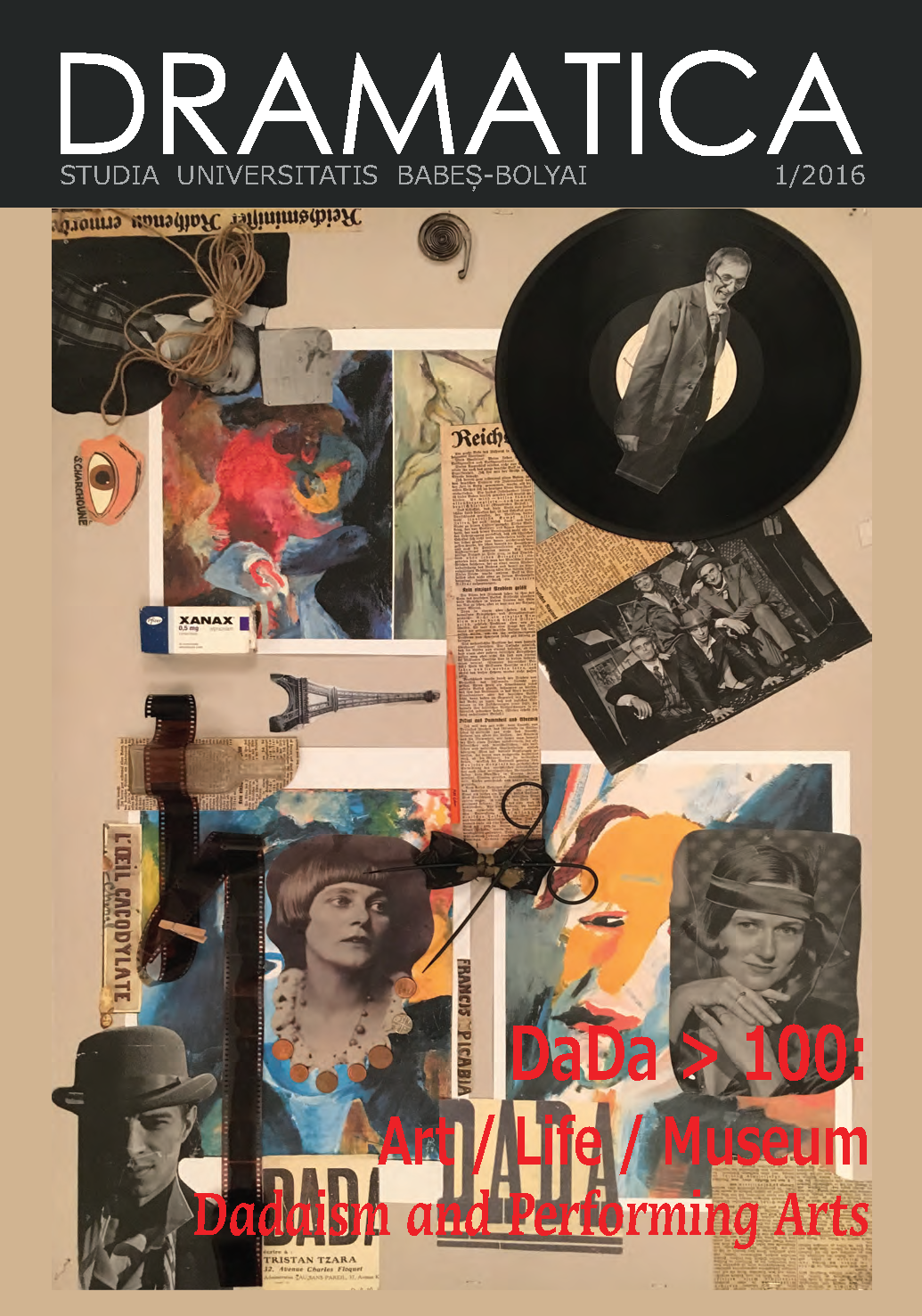Panique, héritier de Dada
Keywords:
Panique, Jodorowsky, Arrabal, Topor, theatre, happenings, cinema, provocation, mixture of genres.Abstract
Panique, heir of Dada. The “Panique” group was created in Paris in 1962 by Alejandro Jodorowsky, Fernando Arrabal and Roland Topor. It was a direct result of the surrealist movement but it was against the dogmatism of André Breton, preferring to return to the fundamentals of Dada and its spirit of revolt. This new group, which brought together people from several countries, chose the name “Panique”, from the mythical figure of Pan, the god of madness and confusion. Like “Dada”, it was not an usual term for an artistic movement. Moreover, Arrabal disapproved the term “movement” for the group, saying that it was more of a “way of being”, based on contradictions and humour. The theatre was its favourite place for expressing new artistic ideas. Jodorowsky began staging happenings in Mexico, like Dada’s performances at the Cabaret Voltaire. Their other plays were considered as festivities and ceremonies, trying to make the public react, particularly by using both poetical language and swear words. This desire to provoke is to be found in their cinema. The films of Jodorowsky and Topor are characterized by a mixture of genres and a play on expectations. So they chose controversial subjects, like Sade (in Marquis by Topor), or to highlight special effects (in The Holy Mountain by Jodorowsky). Through exaggeration and provocation in the arts, the “Panique” group used the methods of the surrealists but renewed them by expressing the spirit of Dada.
References
ARANZUEQUE-ARRIETA Frédéric, Arrabal : la perversion et le sacré, Paris, L’Harmattan, 2006.
ARANZUEQUE-ARRIETA Frédéric, Panique : Arrabal, Jodorowsky, Topor, Paris, L’Harmattan, 2008.
ARRABAL Fernando, Fêtes et rites de la confusion, Paris, UGE, coll. 10/18, 1967.
ARRABAL Fernando, L’Architecte et l’empereur d’Assyrie, Paris, Union général d’éditions, coll. 10/18, 1991.
ARRABAL Fernando, Le Panique, Paris, Union générale d’éditions, coll. 10/18, 1973.
ARRABAL Fernando, Panique: manifeste pour le troisième millénaire, Paris, Punctum, 2006.
BALL Hugo, La Fuite hors du temps, Monaco, Éditions du Rocher, 1993.
BEHAR Henri, Le théâtre dada et surréaliste, Paris, Gallimard, 1979.
CHESNEAU Albert, BERENGUER Angel, Entretiens avec Arrabal. Plaidoyer pour une différence, Grenoble, Presses Universitaires de Grenoble, 1978.
COILLARD Jean-Paul, De la Cage au grand écran, entretien avec Alejandro Jodorowsky, Paris, K-Inite, 2009.
GARDIES René, Glauber Rocha, Paris, Seghers, 1974.
HUBERT Christophe (dir.), Topor, l’homme élégant, Paris, Editions Hermaphrodites, 2004.
JODOROWSKY Alexandro, Théâtre sans fin, Paris, Albin Michel, 2015.
JODOROWSKY Alejandro, Teatro sin fin (tragedias, comedias y mimodramas), Madrid, Siruela, 2007.
LAROUCHE Michel, Alexandre Jodorowsky cinéaste panique, Paris, Albatros, 1985.
SCHIFRES Alain, Entretiens avec Arrabal, Paris, Pierre Belfond, 1969.
TZARA Tristan, Sept manifestes Dada – Lampisteries, Budry, 1924 / Pauvert, 1963.
Downloads
Published
How to Cite
Issue
Section
License
Copyright (c) 2023 Studia Universitatis Babeș-Bolyai Dramatica

This work is licensed under a Creative Commons Attribution-NonCommercial-NoDerivatives 4.0 International License.


